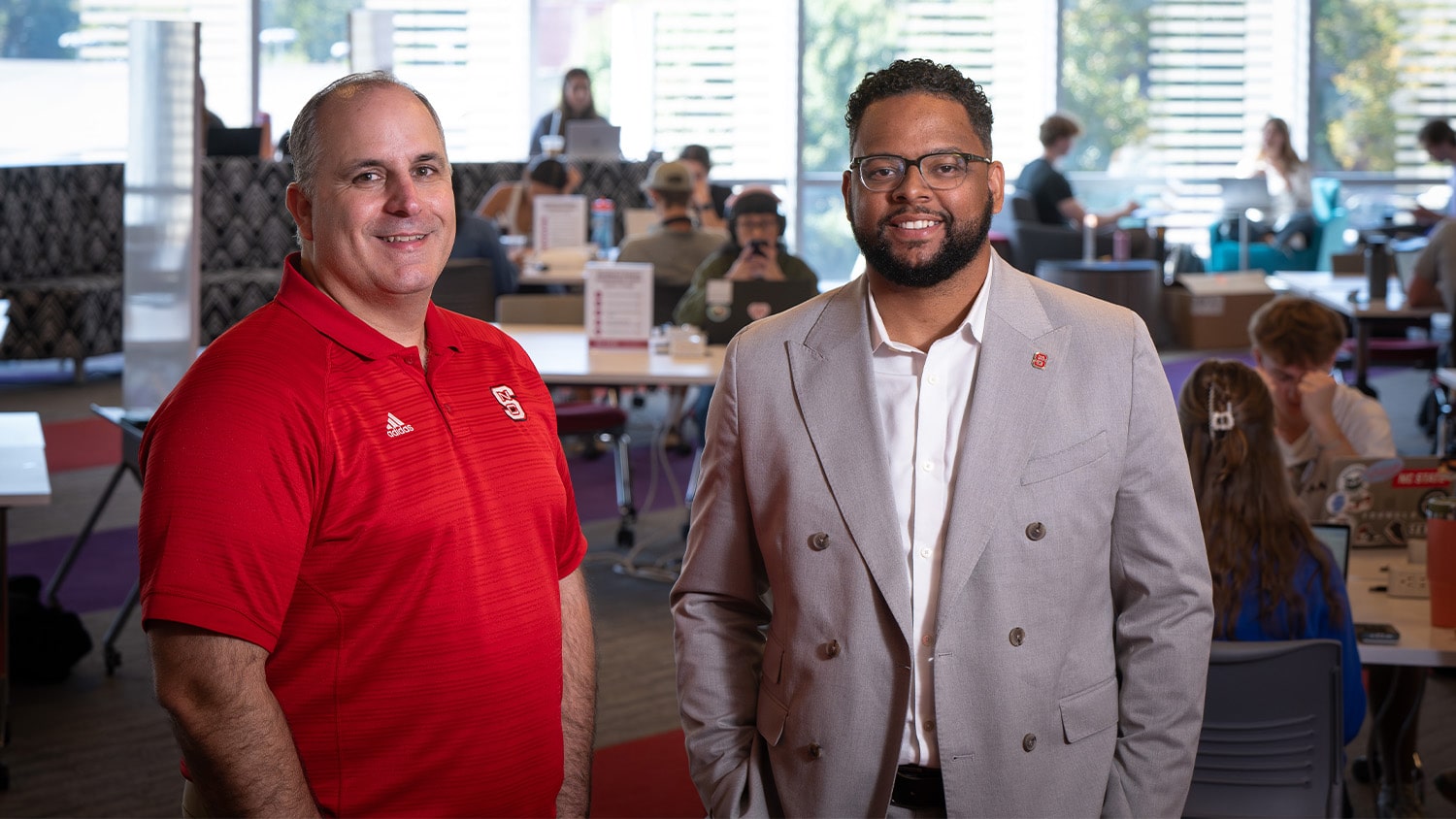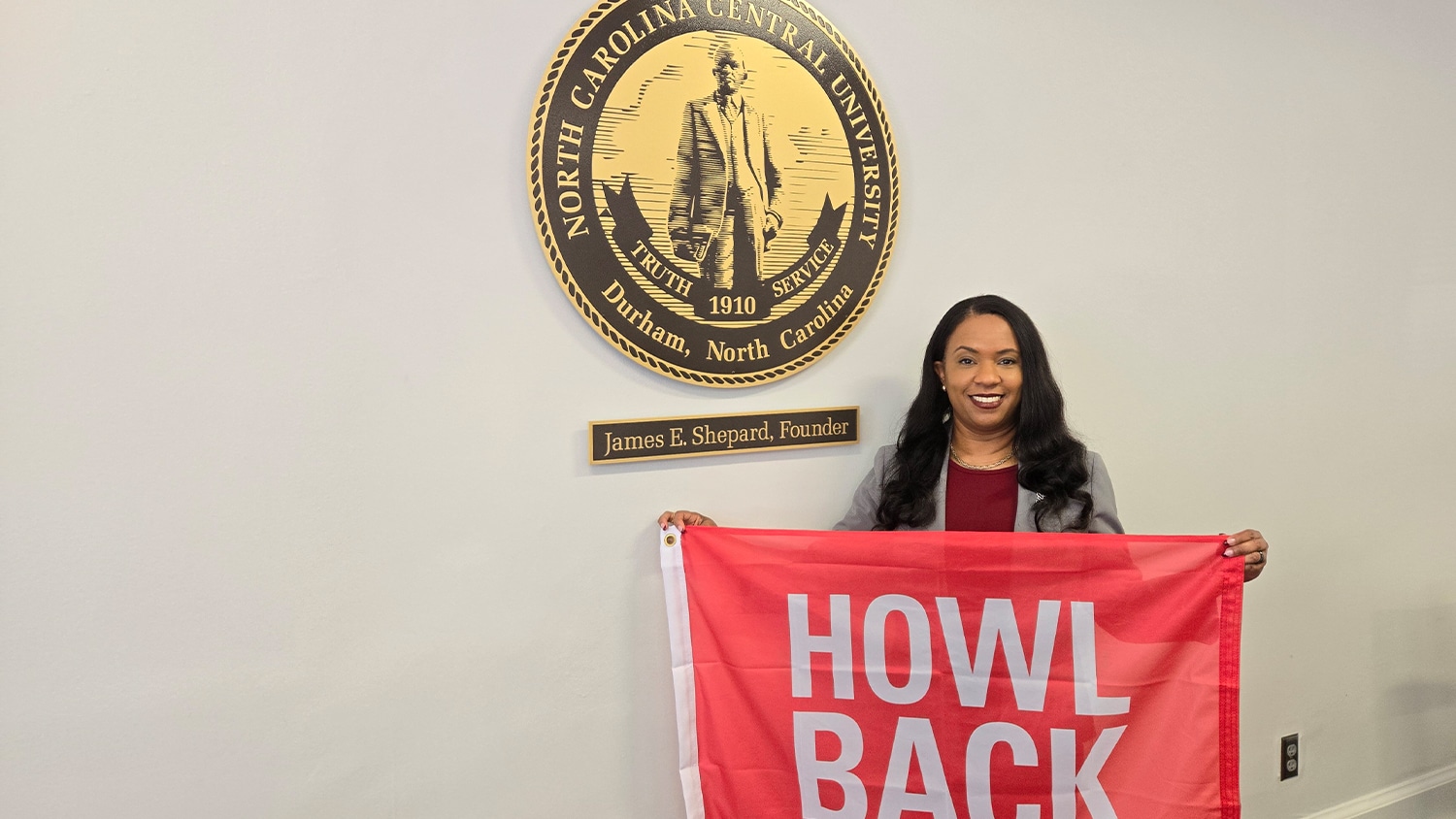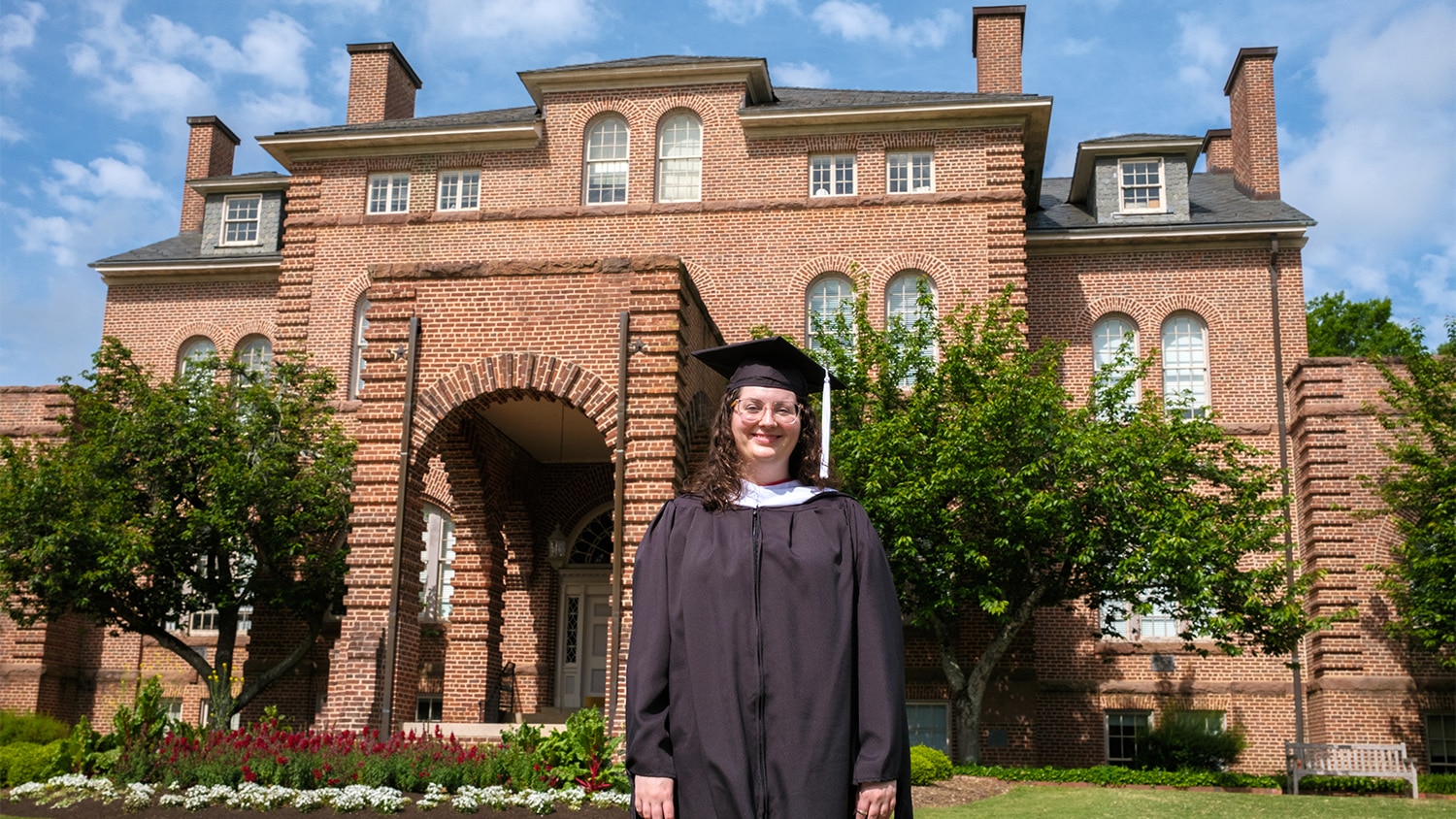An Infrequent Visitor
Anaël Symůnková has only been to NC State’s main campus three times since she first came to work at NC State in 2008. Every time she visits, there is a whole new world of Wolfpack for the communications and marketing manager for the NC State European Center in Prague to see.
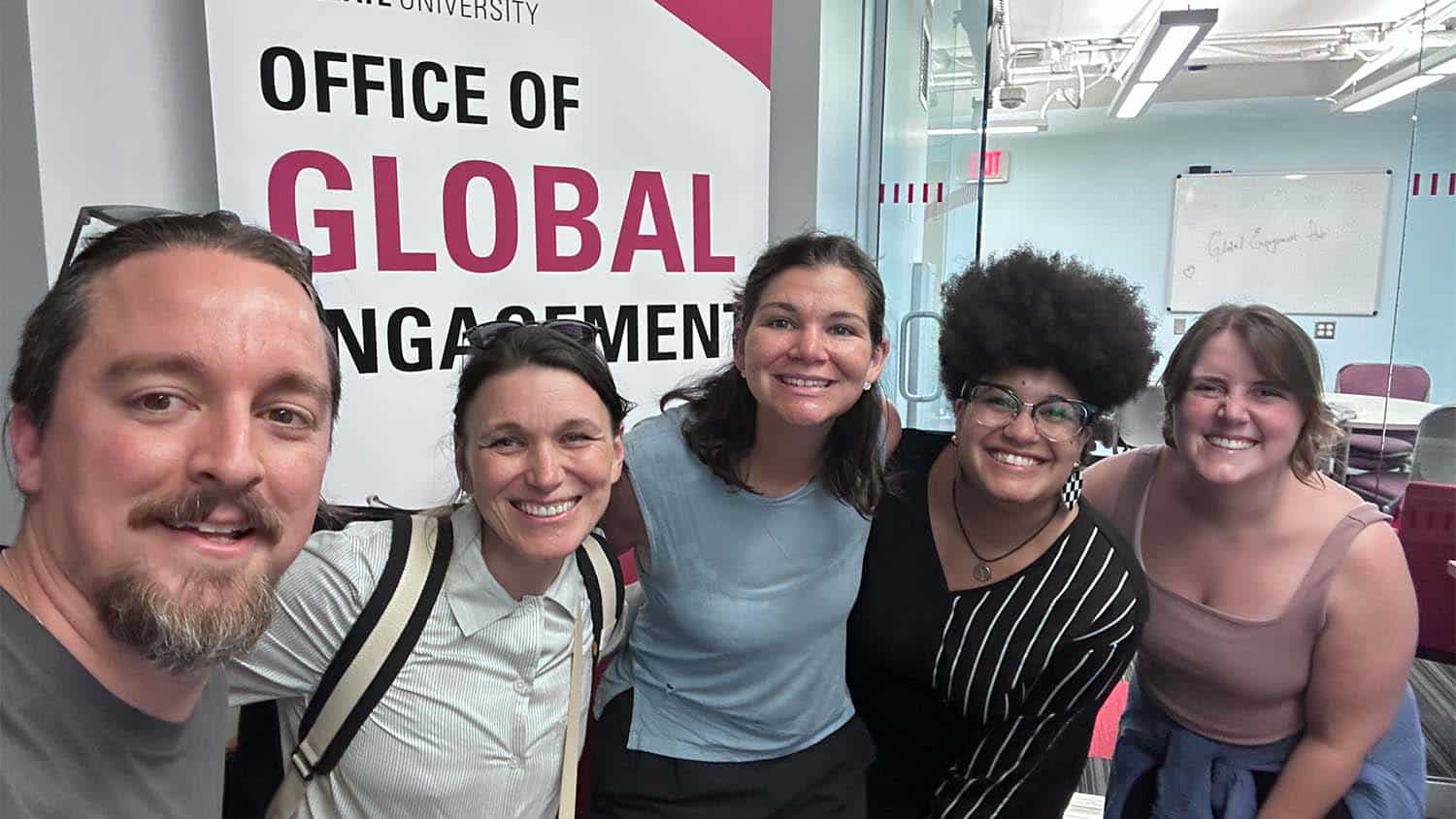
Anaël Symůnková is one of the longest serving staff members at the NC State European Center in Prague, Czechia, though she has rarely been to many of the places she references on a daily basis to students, faculty and staff both at NC State and in the heart of the central European city where she lives.
In early June, she made just her third visit to Raleigh since she was first hired in 2008 as the assistant director of the center, meeting dozens of colleagues she knows only by name and somewhat fuzzy international Zoom connections.
“For me, it’s like being backstage at a rock concert,” she says, “seeing all the people I know virtually and all the people who do things like I do for the European Center.”
She did a walking tour of NC State’s main campus and a driving tour of the outer edges, including the Howling Cow Dairy, Yates Mill Pond Park, PNC Arena, Carter-Finley Stadium and the Raulston Arboretum — all places that have photographic familiarity but were not among the places she visited on her first two trips to campus.
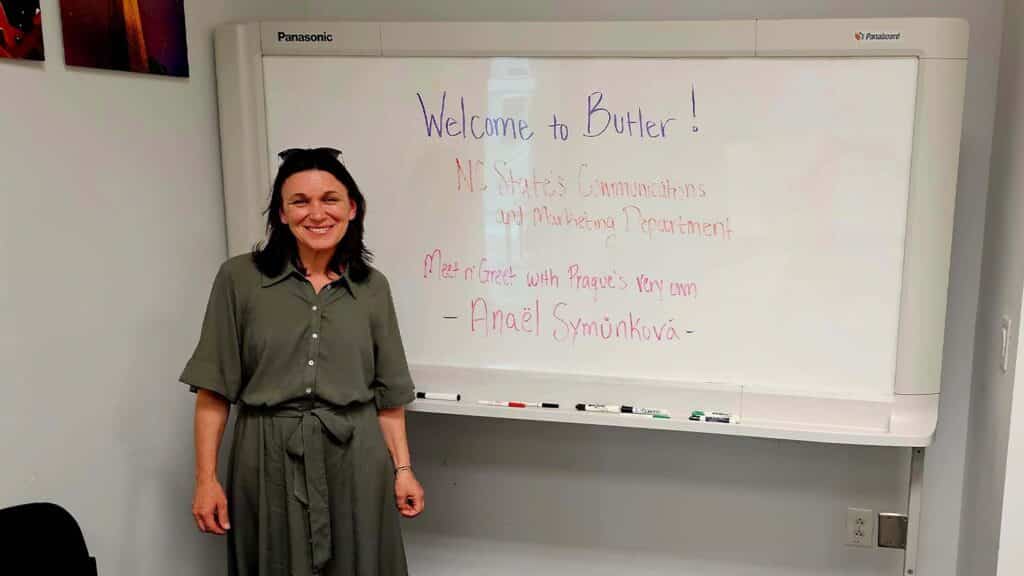
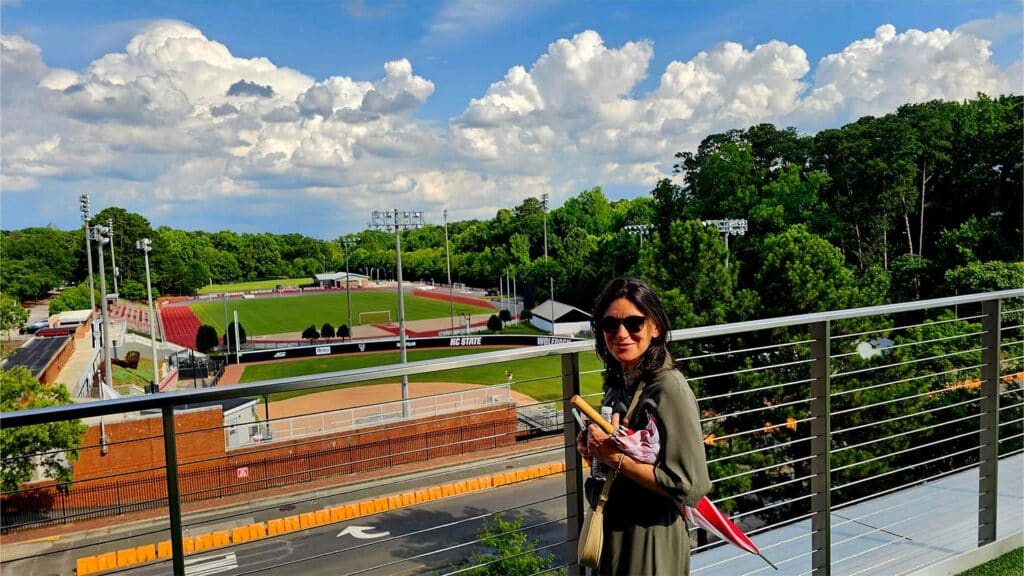
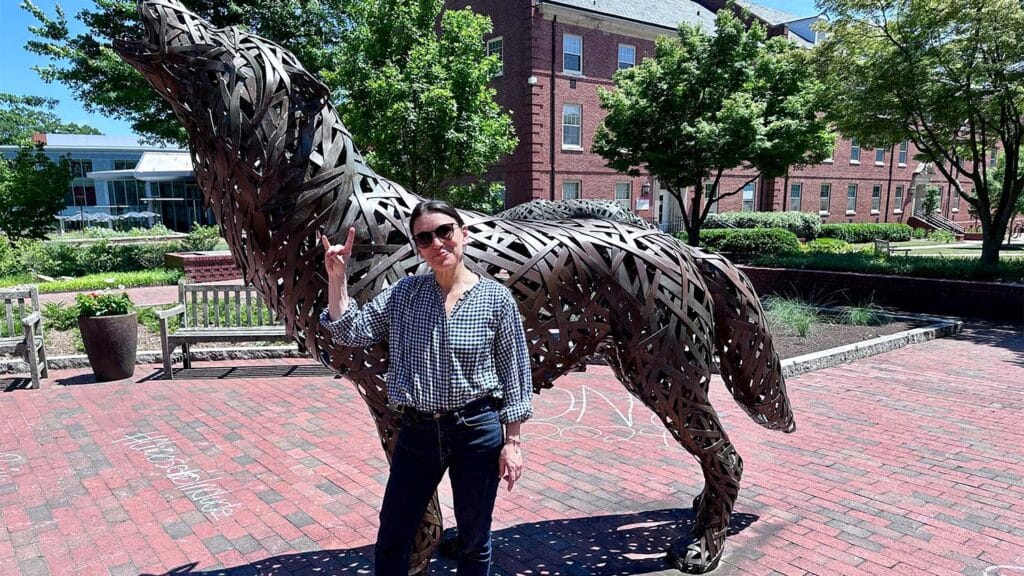
Those trips were in 2009 and 2014, so the tremendous amount of growth on the Raleigh campus was foreign to her. Her last distinct memory of the Brickyard, now fully under construction for the Integrative Sciences Building, was buying NC State-branded souvenirs at the old Student Supply Store while it was temporarily housed in Harrelson Hall during the massive renovations at Talley Student Union.
That was a full decade ago.
So, after receiving an invitation to present at the global NAFSA: Association of International Educators conference in New Orleans in late May, Symůnková made arrangements to spend almost a full work week in Raleigh, to meet with colleagues in the Office of Global Engagement, University Communications and Marketing, the College of Design and New Student Programs. Friends she has made through the years showed her some things she had never seen, like an aerial tour of the Blue Ridge Mountains. Associate professor in the School of Public and International Affairs Heidi Hobbs took her to see the campus at UNC-Chapel Hill, which is sending a smattering of students to study in Prague. She spent time with crop science professor Bob Patterson, who has made Prague a regular destination in his global research, talking about their trips to organic farms and bee institutes in Czechia.
She took in the rock-climbing walls and other facilities at the newly expanded Carmichael Gymnasium.
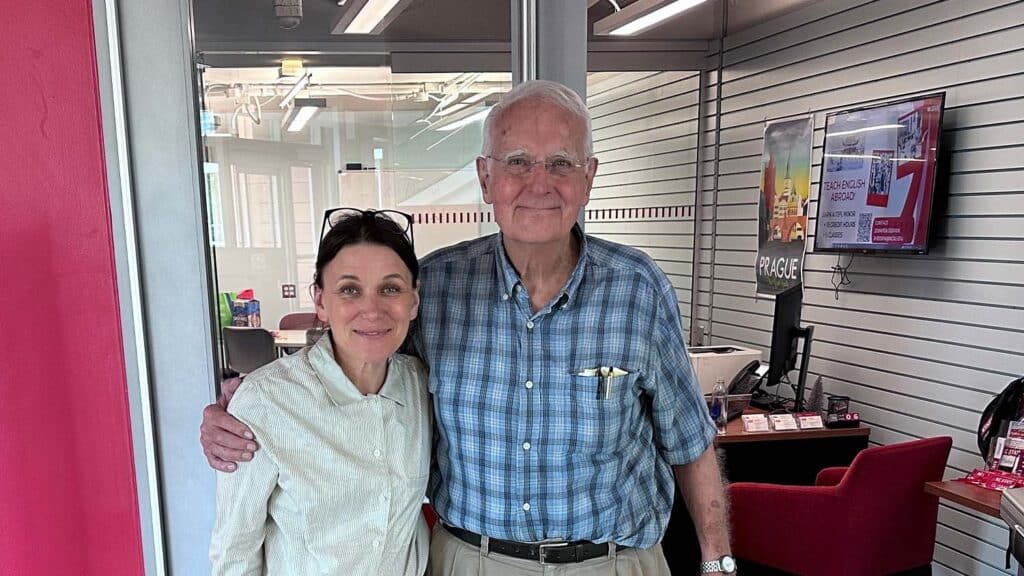
And as she walked campus, she bumped into five former European Center students, including a Spring Connect student from last fall, another student working at Wolfpack Outfitters and, for her last dinner in Raleigh, a chance encounter with a former student at the Chipotle restaurant on Hillsborough Street. It’s always nice to see a familiar face, especially for someone who often gives parental guidance and advice to homesick students, many of whom are on their first trip away from home and out of the country.
“Running into those former students was pure chance,” she says. “It was my highlight, because they are the reason why I do my job. Seeing and hearing how Prague impacted their college experience and lives is the best reward.
“There is a before and after a study abroad experience.”
Her responsibilities include creating marketing materials, guidebooks and promotional information about the Center’s wide array of programs for Spring Connect, College of Design, the Shelton Leadership minor and other study abroad programs offered at the European Center. She also oversees the center’s digital presence, namely, its website, social media platforms and visual identity through photography and videos.
About 20 percent of NC State’s students have some sort of international study abroad experience, and about 80 percent of those participating in international programs go to Prague for semester-long and summer programs. Faculty also lead programs there and more staff have visited in the five years since it became a comprehensive international study site instead of a part of the College of Design.
Recently, Symůnková also got a crash course in crisis communications last December after Prague experienced the first mass shooting event in the city’s history in which 12 people were killed and 22 injured at the Faculty of Art building at Charles, barely a mile away from NC State’s campus in the central part of the ancient city.
The European Center’s staff quickly went into action to locate every student, staff and faculty member and to create updates and alerts for worried family members still in town and those who had traveled home for the winter break.
“I remember calling our faculty members, who also taught at Charles University and could have been teaching at the time of the shooting, to check if they were alive,” she says. “I kept my mind focused and didn’t let emotions take over. I felt supported by my colleagues back on campus, who relayed my information and by the procedures in place.
“Only when I returned home at 10 p.m. did it all hit me. It was an eye-opening communications experience.”
Symůnková began her NC State career not long after it became a year-round program, back when the European Center consisted of just a small location in Prague, as a student-facing assistant director responsible for programs and other experience enhancements. The center has expanded tremendously since then and is now located in a four-story building in the center of Prague’s historic Old Town Square, a UNESCO World Heritage Site.
The European Center, which offers classes general education classes for each of NC State’s 11 colleges, is adjacent to a limited program sponsored by New York University and is located not far away from Czechia’s largest higher-education campuses, such as Charles University, the Architectural Institute, the Czech Technical University, the Czech University of Life Sciences and UMPRUM (Prague’s Academy of Arts, Architecture and Design).
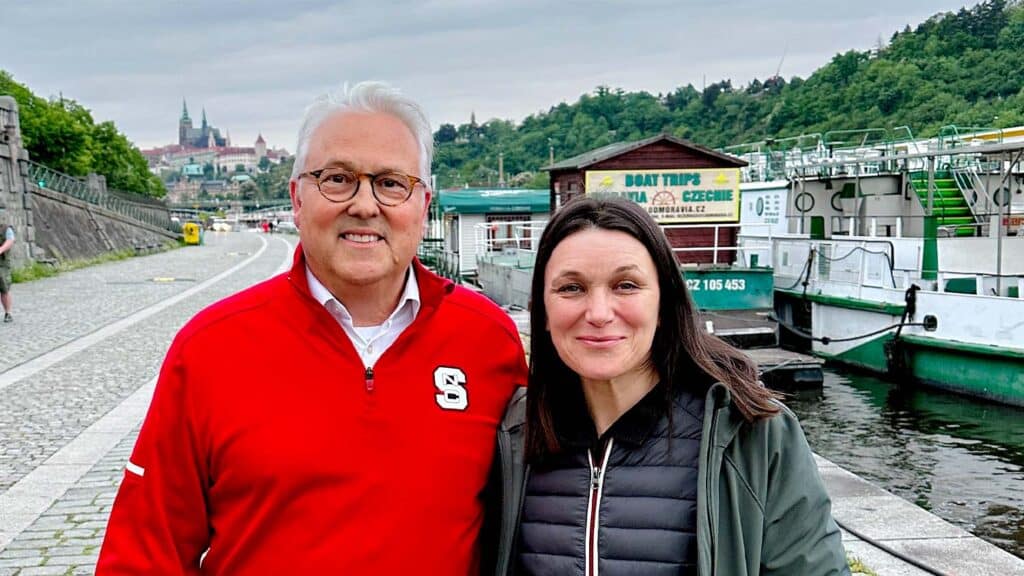
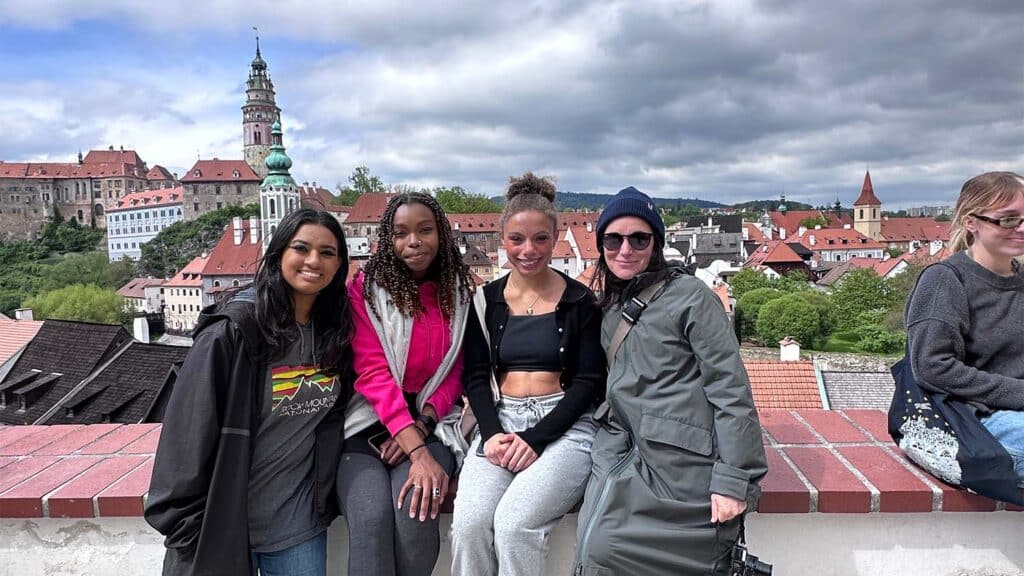
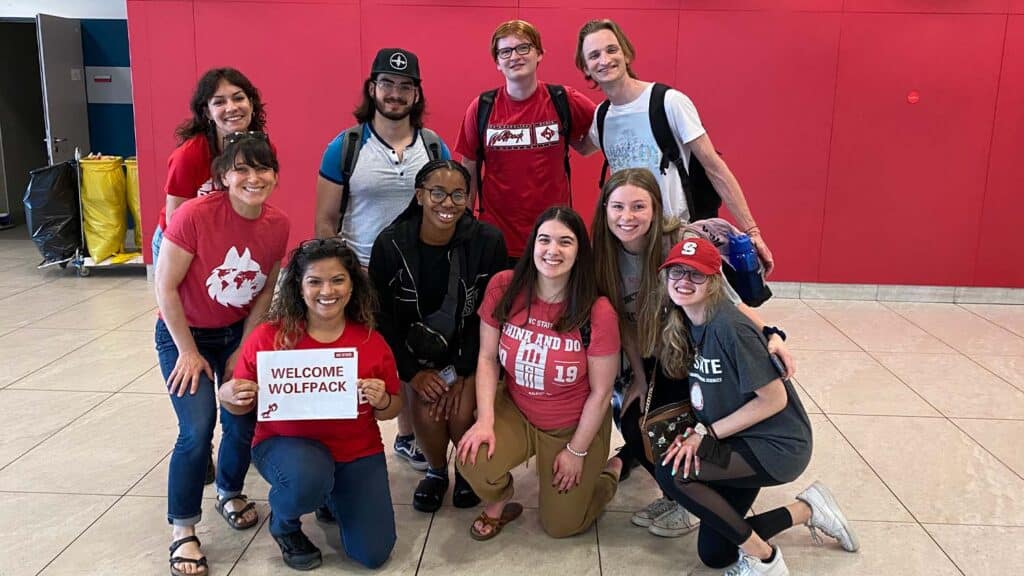
All of those are connected by the city’s elaborate web of public transportation, which includes a subway, above-ground trams and buses. Symůnková spent much of her time in Raleigh walking and using available e-bikes that she took from her temporary apartment at Wolf Village.
A native of Paris, Symůnková was educated in Scotland, earning a Bachelor of Arts in communications and mass media from the Glasgow Caledonian University, with a study abroad semester at The Hague University of Applied Science in the Netherlands.
While the European Center was partially closed during the global COVID pandemic, she worked online to complete a postgraduate diploma at the Digital Marketing Institute in Dublin, Ireland, (2020) and earned a M.Sc. in Digital Marketing from the University of Salford in Manchester, United Kingdom (2023).
She first moved to Prague after marrying a Czech native and now has two school-aged daughters.
Symůnková was first hired in January 2008 as a student affairs and program coordinator, three years after it became a year-round site for the College of Design. Over the years, she has been elevated to vice director, communications specialist and communications and marketing manager.
“Her student-facing experience is what makes her the incredible communicator she is,” Strozewski says. “She deeply understands the student experience and then translates this into our brand and our communications strategy.”
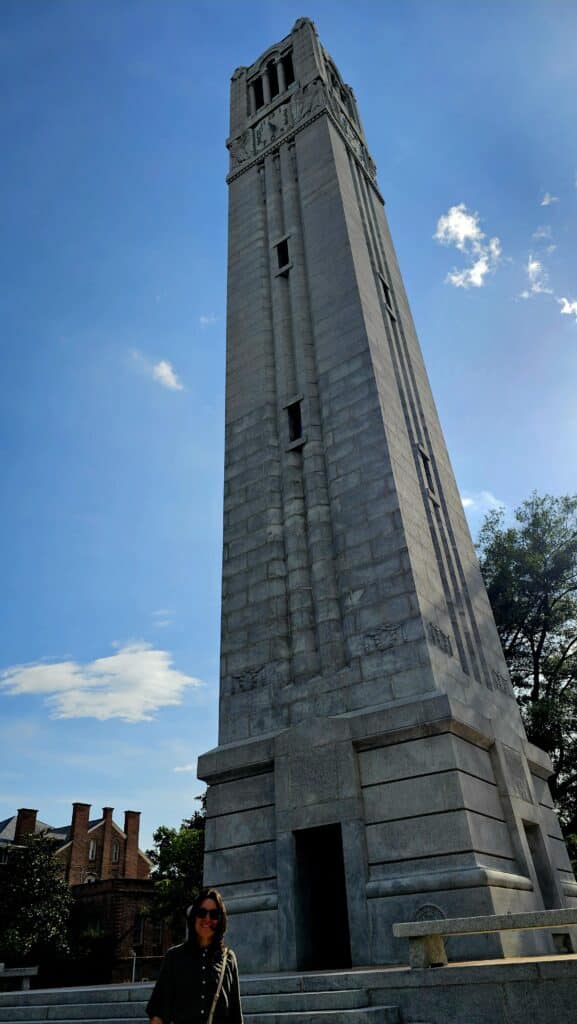
Although she’s a long-time employee, she is still learning about the university and the programs she promotes.
“My visit’s key takeaway is that Prague is not actually that far away,” she says. “Because the campus is so large, colleagues tend to Zoom in anyway. Communication-wise, we are all on the same page.
“There is a strong awareness of the NC State European Center’s existence, although there is still room for improvement, and that’s my job to make it happen.”
- Categories:
